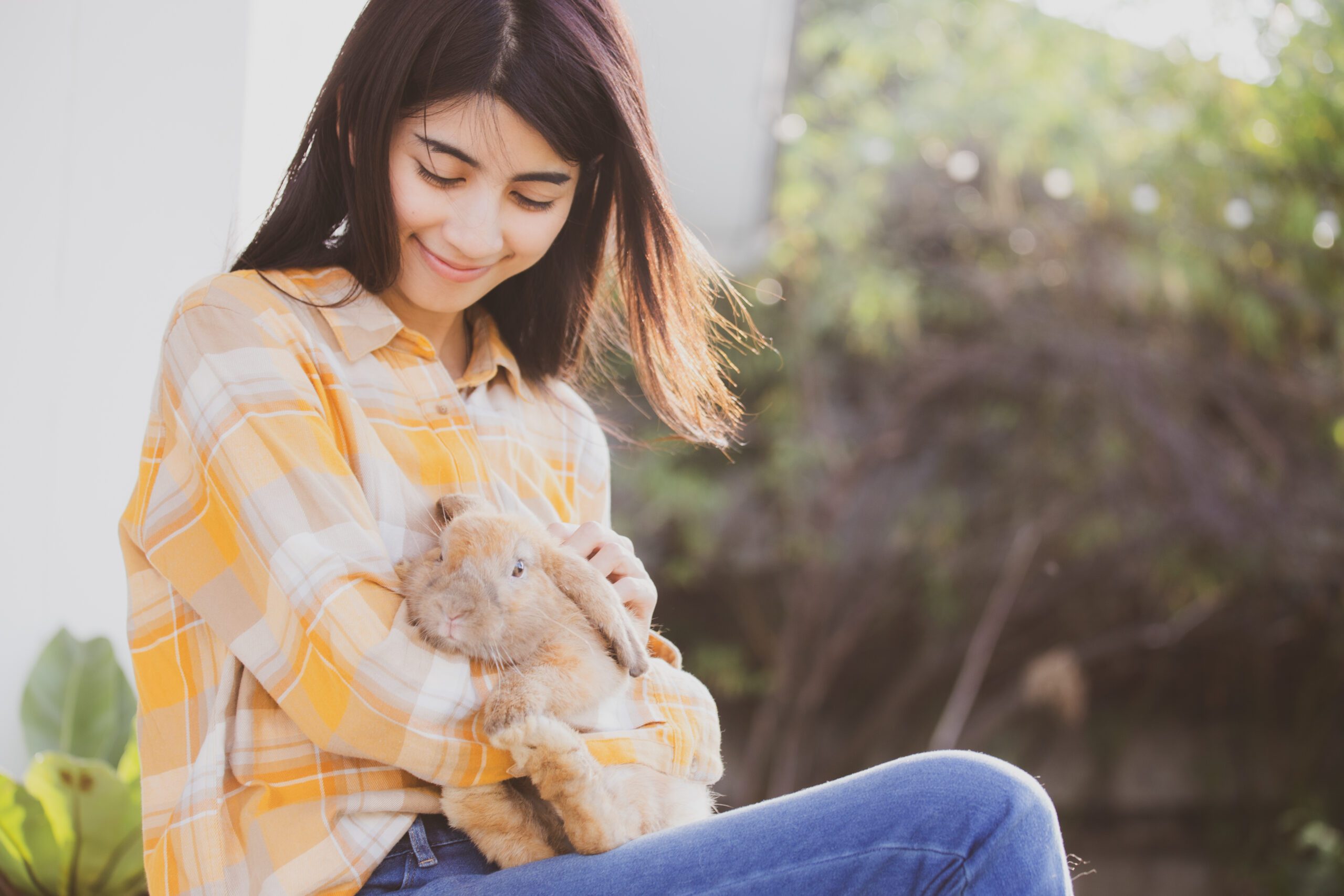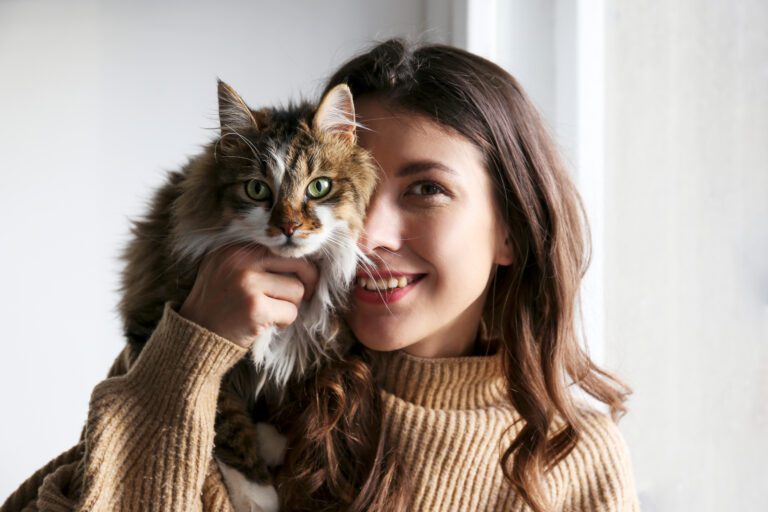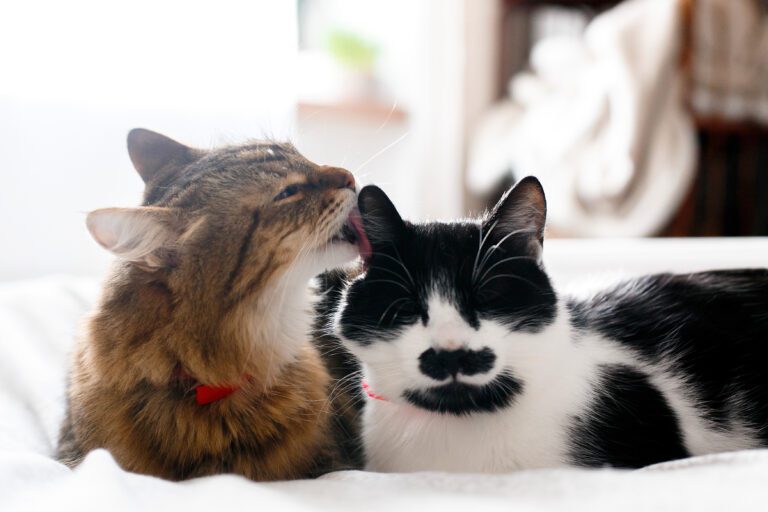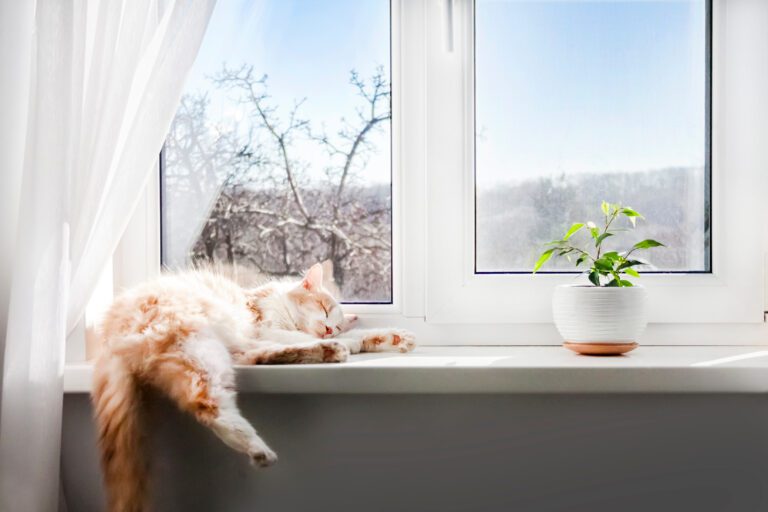As responsible pet owners, it’s crucial to provide our furry friends with the right balance of exercise and nutrition to ensure their overall well-being. When it comes to pet rabbits, proper exercise and a nutritious diet are essential for maintaining their health, happiness, and longevity. In this blog, we guide you through the process of providing your beloved pet rabbit with the right exercise routines, a well-balanced diet, and a suggested vet visit schedule.
Exercise for Rabbits
Rabbits are naturally active creatures, and regular exercise is vital for their physical and mental stimulation. Here are a few key aspects to consider when providing exercise for your pet rabbit:
- Safe Indoor Environment: Designate a safe area where your rabbit can roam freely. Ensure the space is bunny-proofed by removing any hazardous items or food, blocking off dangerous areas, and covering electrical cords. Consider setting up a playpen or using baby gates to create a secure space.
- Supervised Playtime: Allow your rabbit to explore your rabbit-proofed area under your supervision. Spend quality time interacting with your pet, providing mental stimulation through gentle play, toys, and games. You can even teach your pet rabbit some basic tricks using positive reinforcement techniques.
- Outdoor Time: Weather permitting, supervised outdoor time in a secure enclosure can provide additional exercise and exposure to fresh air. Always make sure your rabbit has a shaded area to retreat to and avoid exposing them to extreme temperatures.
- Encouraging Natural Behaviors: Encourage your rabbit’s natural behaviors, such as hopping, running, and digging. Provide toys and tunnels to simulate their natural instincts and keep them physically active.
Nutrition for Rabbits
A proper diet is crucial for a rabbit’s overall health, as their digestive systems are sensitive. Follow these guidelines to ensure your pet rabbit receives the right nutrition:
- Fresh Hay: The foundation of a rabbit’s diet should be fresh, high-quality hay. Timothy hay is a popular choice, but other varieties like orchard grass or oat hay can be offered as well. Hay aids digestion, promotes dental health, and prevents gastrointestinal issues.
- Fresh Vegetables: Introduce a variety of fresh, rabbit-safe vegetables into your rabbit’s diet. Examples include leafy greens (such as kale, spinach, and romaine lettuce), carrots, bell peppers, and herbs like cilantro and parsley. Introduce new vegetables gradually and in small quantities to avoid digestive upset. Click here to learn more about human safe foods to feed your rabbit in our PetSpot blog.
- Limited Pellets: Commercial rabbit pellets can be provided in moderation as a supplement to hay and vegetables. Look for high-quality pellets with a high fiber content and avoid those with added sugars or artificial additives. Follow the manufacturer’s feeding guidelines based on your rabbit’s age and weight.
- Fresh Water: Ensure your rabbit has access to fresh, clean water at all times. Use a water bottle or a heavy, spill-proof bowl to prevent tipping.
- Treats in Moderation: Treats should be limited and reserved for training purposes or occasional rewards. Opt for rabbit-safe treats such as small pieces of fruit (e.g., apple or banana) or homemade treats specifically formulated for rabbits.
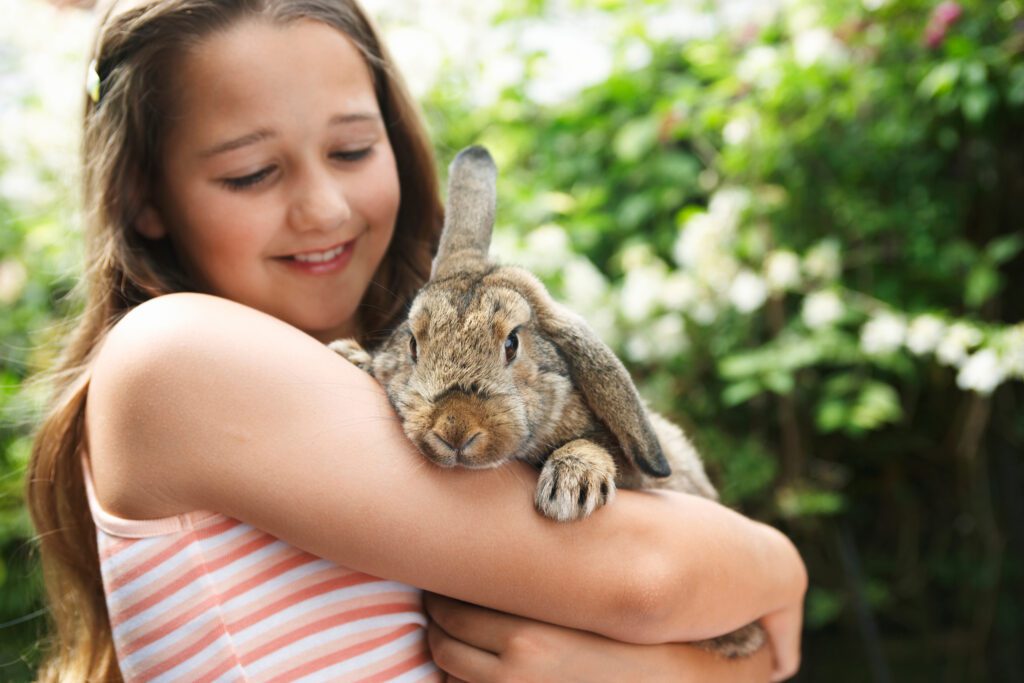
Vet Visits
Taking your pet rabbit to the vet regularly is an important aspect of responsible pet ownership. While the frequency of veterinary visits may vary depending on your rabbit’s age, overall health, and any specific concerns, here are some general guidelines:
Initial Check-Up
When you first bring your rabbit home, schedule an initial check-up with a rabbit-savvy veterinarian. This visit will help establish a baseline for your rabbit’s health, ensure they are free from any underlying conditions, and allow you to discuss appropriate preventive care.
Geriatric Care
As rabbits age, they may require more frequent veterinary visits. Around the age of 5-6 years, rabbits are considered seniors, and their health needs may change. Your veterinarian may recommend more frequent check-ups, blood tests, and dental evaluations to monitor your rabbit’s health and address any age-related issues.
Annual Wellness Exams
Just like any other pet, rabbits should have annual wellness exams. These visits give the veterinarian an opportunity to assess your rabbit’s overall health, couple with the ability to conduct a thorough physical examination, and address any concerns or questions you have. During these visits, your veterinarian may also administer necessary vaccinations. For more information on our recommended pet wellness plans in the US, click below!

Illness or Injury
If your rabbit shows any signs of illness or injury, it is essential to seek veterinary care promptly. Rabbits are prey animals and tend to hide signs of illness, meaning early intervention is crucial. Signs of potential health issues can include changes in appetite, weight loss, diarrhea, abnormal behavior, respiratory problems, or dental problems. If you notice anything unusual, consult your veterinarian right away.
Spaying/Neutering
If your rabbit has not been spayed or neutered, consider discussing this with your veterinarian. Spaying or neutering not only prevents unwanted litters but can also provide health benefits and reduce the risk of certain reproductive disorders.
Remember, these are general guidelines, and your veterinarian will provide you with personalized recommendations based on your rabbit’s specific needs. Developing a good relationship with a rabbit-savvy veterinarian is crucial in ensuring your pet’s ongoing health and well-being.
In conclusion, providing your pet rabbit with proper exercise, nutrition, and regular vet visits is essential for their overall well-being. By offering a safe environment for exercise and following a balanced diet, you can ensure your rabbit leads a healthy and fulfilling life. Remember to consult with a veterinarian for specific dietary recommendations and any concerns regarding your pet’s health. With your love and care, your pet rabbit will thrive, bringing joy to your life for years to come.


